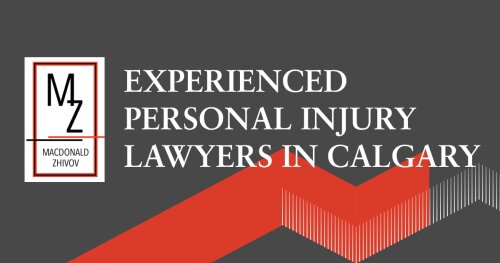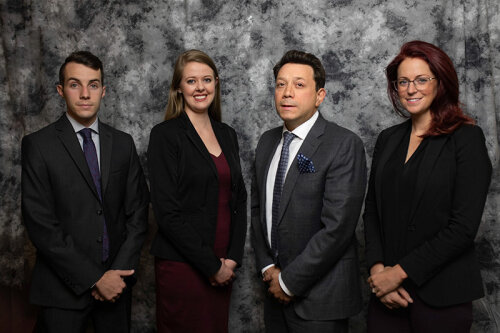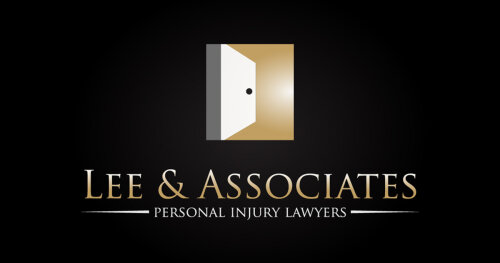Best Motor Vehicle Defect Lawyers in Canada
Share your needs with us, get contacted by law firms.
Free. Takes 2 min.
Or refine your search by selecting a city:
List of the best lawyers in Canada
About Motor Vehicle Defect Law in Canada
Motor vehicle defect law in Canada primarily deals with the liability and responsibility of manufacturers and dealers regarding the safety and design of vehicles. These laws ensure that vehicles sold in the Canadian market meet stringent safety standards and are free from defects that could harm passengers or others. Vehicle defects can range from design flaws, parts malfunction, or failure to meet safety regulations. Understanding your rights under these laws is essential if you believe a defect has caused an injury or significant problem with your vehicle.
Why You May Need a Lawyer
There are several situations where individuals may require legal assistance in dealing with motor vehicle defects:
- Injury or Accident: If a defect leads to an accident resulting in injury or death, legal intervention is crucial for seeking compensation.
- Product Liability Claims: If a vehicle or part has a defect that manufacturers failed to address, consumers might seek legal action to hold them accountable.
- Warranty Issues: If a defect falls within the warranty period but the manufacturer fails to repair or replace it, a lawyer can help enforce your rights.
- Class Action Participation: If a defect affects a large number of consumers, joining a class action suit might be an option.
Local Laws Overview
In Canada, motor vehicle safety standards are governed by the Motor Vehicle Safety Act. This act authorizes the formulation of regulations regarding the design and safety of vehicles to protect Canadians. Key aspects include:
- Safety Regulation Compliance: All vehicles must comply with federal safety standards during design, manufacture, and distribution.
- Recall Obligations: Manufacturers are required to notify Transport Canada of any discovered defects and proceed with recalls.
- Consumer Protection Laws: These laws provide recourse for buyers to take action if they purchase defective vehicles under false pretenses or fraudulent claims.
Frequently Asked Questions
What qualifies as a motor vehicle defect?
A motor vehicle defect refers to any fault in a vehicle’s design, manufacture, or performance that poses a risk to safety or significantly impacts the vehicle's operation.
How do I know if my vehicle has been recalled?
You can check the Transport Canada vehicle recall database online or contact the manufacturer. Typically, you will receive a notification if your vehicle is affected by a recall.
What should I do if my vehicle has a defect?
Contact your dealer or manufacturer immediately. If they do not resolve the issue, consider consulting with a lawyer to discuss your options.
Am I entitled to a replacement or refund for a defective vehicle?
Entitlements vary depending on the warranty and specific consumer protection laws. Legal advice can help clarify your rights, which may include refunds or replacements.
Can I join a class action lawsuit for a vehicle defect?
If a defect affects multiple vehicle owners, a class action lawsuit might be filed. A lawyer can advise you on the possibility and your eligibility to join such a lawsuit.
What evidence do I need for a defect claim?
Documentation of the defect, repair invoices, accident reports, recall notices, and warranty details will support your claim.
How long do I have to file a legal claim for a defective vehicle?
Time limits vary by province and the specifics of the case. It’s advised to seek legal advice as soon as possible to ensure timely filing.
Will hiring a lawyer be expensive for a defect claim?
Many lawyers work on a contingency fee basis, meaning they only get paid if you win the case. Discuss payment options during the initial consultation.
What if the defect is due to wear and tear?
Normal wear and tear usually don’t qualify as defects. A lawyer can help differentiate between wear and tear and a legitimate defect claim.
Can I still claim if I’ve modified my vehicle?
Modifications might affect your claim, particularly if the changes impact the defect. Seek legal advice to understand your specific situation.
Additional Resources
For additional support and information, consider reaching out to the following resources:
- Transport Canada Motor Vehicle Safety
- Canadian Consumer Handbook: Auto and Transportation
- Provincial Consumer Affairs Offices
- Automobile Protection Association
Next Steps
If you believe you have a motor vehicle defect issue, consider the following steps:
- Document Everything: Take detailed notes and photos of the defect, and keep records of all communications and repairs.
- Check for Recalls: Verify if your vehicle is under any recall notice related to the defect.
- Consult a Lawyer: Seek advice from a lawyer specializing in motor vehicle defects to discuss your legal options.
- File a Complaint: Report the defect to Transport Canada if you believe it poses a safety risk.
Lawzana helps you find the best lawyers and law firms in Canada through a curated and pre-screened list of qualified legal professionals. Our platform offers rankings and detailed profiles of attorneys and law firms, allowing you to compare based on practice areas, including Motor Vehicle Defect, experience, and client feedback.
Each profile includes a description of the firm's areas of practice, client reviews, team members and partners, year of establishment, spoken languages, office locations, contact information, social media presence, and any published articles or resources. Most firms on our platform speak English and are experienced in both local and international legal matters.
Get a quote from top-rated law firms in Canada — quickly, securely, and without unnecessary hassle.
Disclaimer:
The information provided on this page is for general informational purposes only and does not constitute legal advice. While we strive to ensure the accuracy and relevance of the content, legal information may change over time, and interpretations of the law can vary. You should always consult with a qualified legal professional for advice specific to your situation.
We disclaim all liability for actions taken or not taken based on the content of this page. If you believe any information is incorrect or outdated, please contact us, and we will review and update it where appropriate.
Browse motor vehicle defect law firms by city in Canada
Refine your search by selecting a city.
















